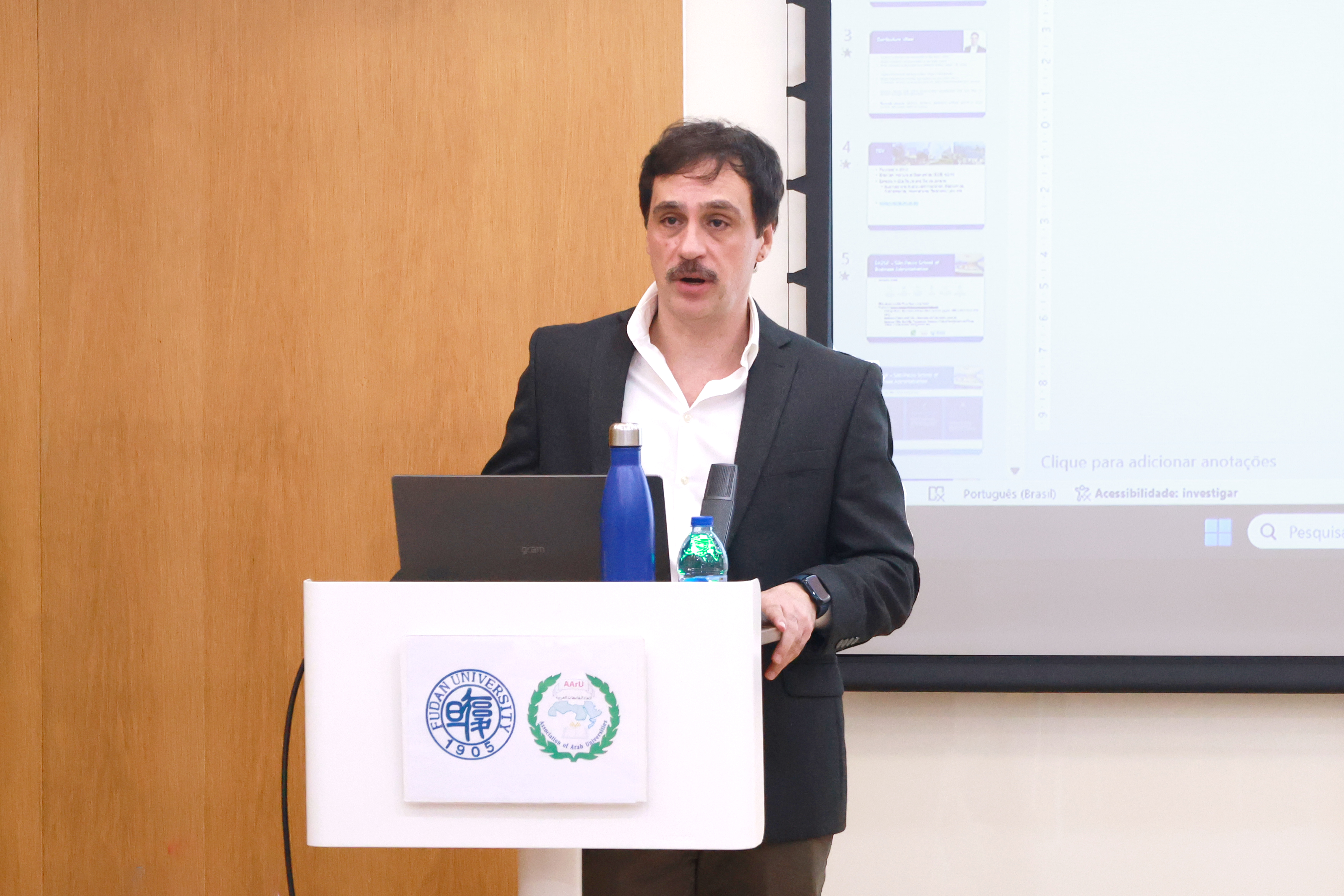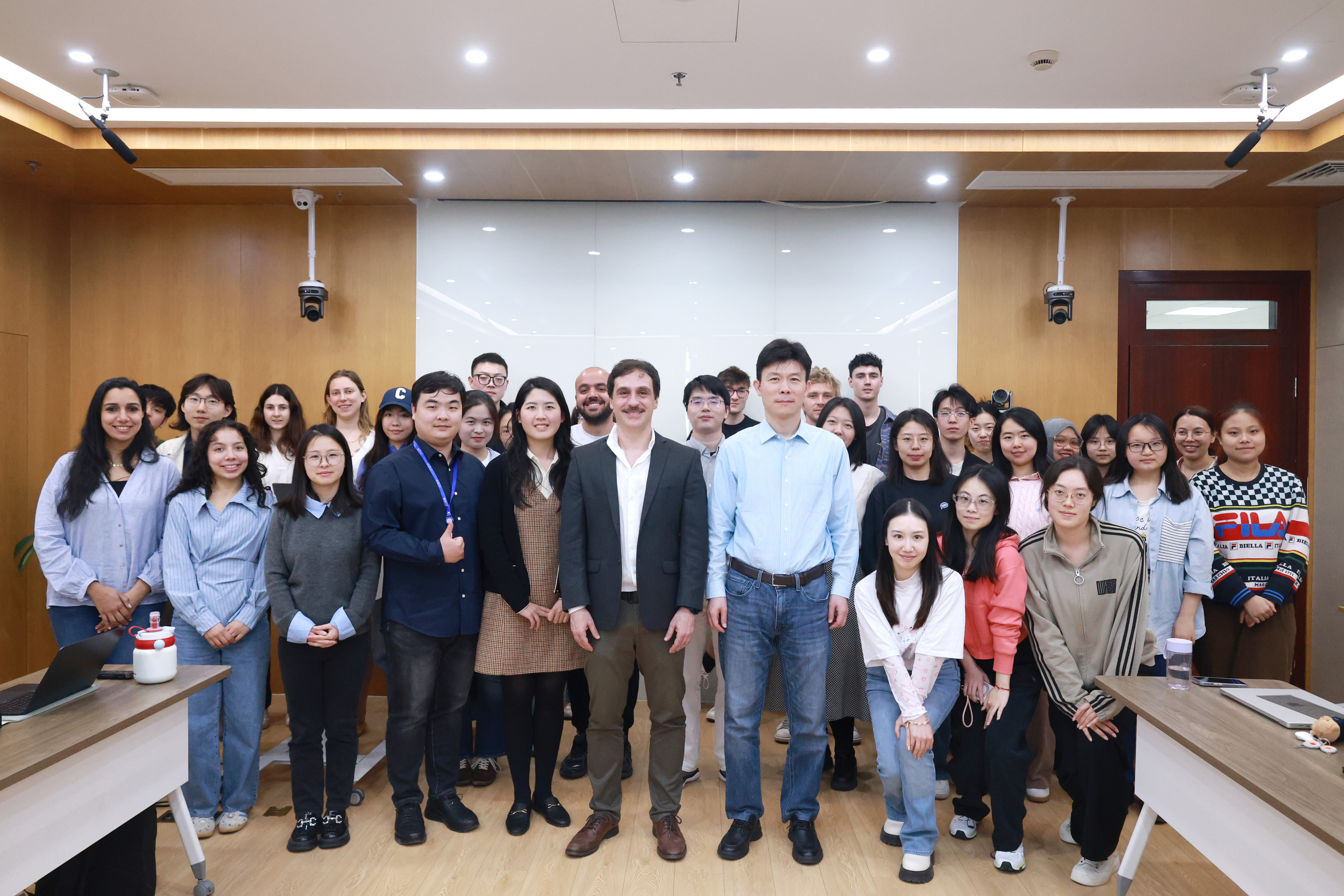Events



On March 24, 2025, the Fudan Institute for Global Public Policy (IGPP) organized the 18th lecture of the Fudan-Arab Lecture Series. Adjunct Professor André Samartini of Fundação Getulio Vargas delivered a lecture on the theme of Strategies to Publish a Paper Based on Surveys. Assistant Professor Jingyuan Xu of IGPP chaired the lecture.
Professor Samartini is a Visiting Scholar at the Fudan-Arab Research Centre for Global Development and Governance and Adjunct Professor at Fundação Getulio Vargas. His research focuses on analytics, big data, and the application of statistics.

At the beginning of the lecture, Professor Samartini highlighted that common method bias is a hidden trap in quantitative research. When the same respondent provides data for both independent and dependent variables within a single questionnaire, factors like social desirability and response pattern inertia can lead to an overestimation of the correlation between variables. He also illustrated how reliance on self-reported data alone can result in distorted findings due to subjective bias. To address this issue, Professor Samartini proposed a “design-first” approach: researchers should separate data sources, incorporate reverse-coded items and multi-dimensional scales during questionnaire design, and include marker variables unrelated to core constructs to evaluate response quality.
Addressing the issue of bias in existing data, Professor Samartini introduced several statistical correction techniques. He demonstrated how researchers can apply Harman’s single-factor test and the latent common method factor model to assess the extent of bias and adjust their findings using structural equation modeling (SEM). He emphasized that academic transparency is crucial—by proactively reporting bias testing results in research papers, scholars can significantly enhance the credibility of their work.
At the end of the lecture, Professor Samartini emphasized that cross-national comparative studies have become a popular focus in public administration research. However, cultural differences often raise concerns about the validity and applicability of measurement scales across contexts. Drawing on a 2024 study of civil servants in Brazil and Indonesia, he illustrated the three-tiered process of testing measurement invariance: configural, metric, and scalar. The study revealed that performance accountability had significantly greater predictive power for strategic management practices among Indonesian civil servants than among their Brazilian counterparts. This disparity was attributed to the differing levels of performance culture embedded within the institutional environments of the two countries.
During the Q&A session, faculty and students engaged in discussions with Professor Samartini on topics such as eye-tracking technology and causal inference. Professor Samartini noted that while eye-tracking technology can effectively monitor respondents’ attention distribution, it cannot fully resolve social desirability bias, and should be used in conjunction with questionnaire design and statistical modeling. He also introduced conjoint experiments, highlighting their ability to simulate real-world decision-making processes at a relatively low cost. This method holds particular value for evaluating public policy preferences and trade-offs in a controlled yet realistic setting.

After the lecture, Assistant Professor Xu presented a commemorative gift to Professor Samartini. The event concluded with a group photo of the faculty and students.